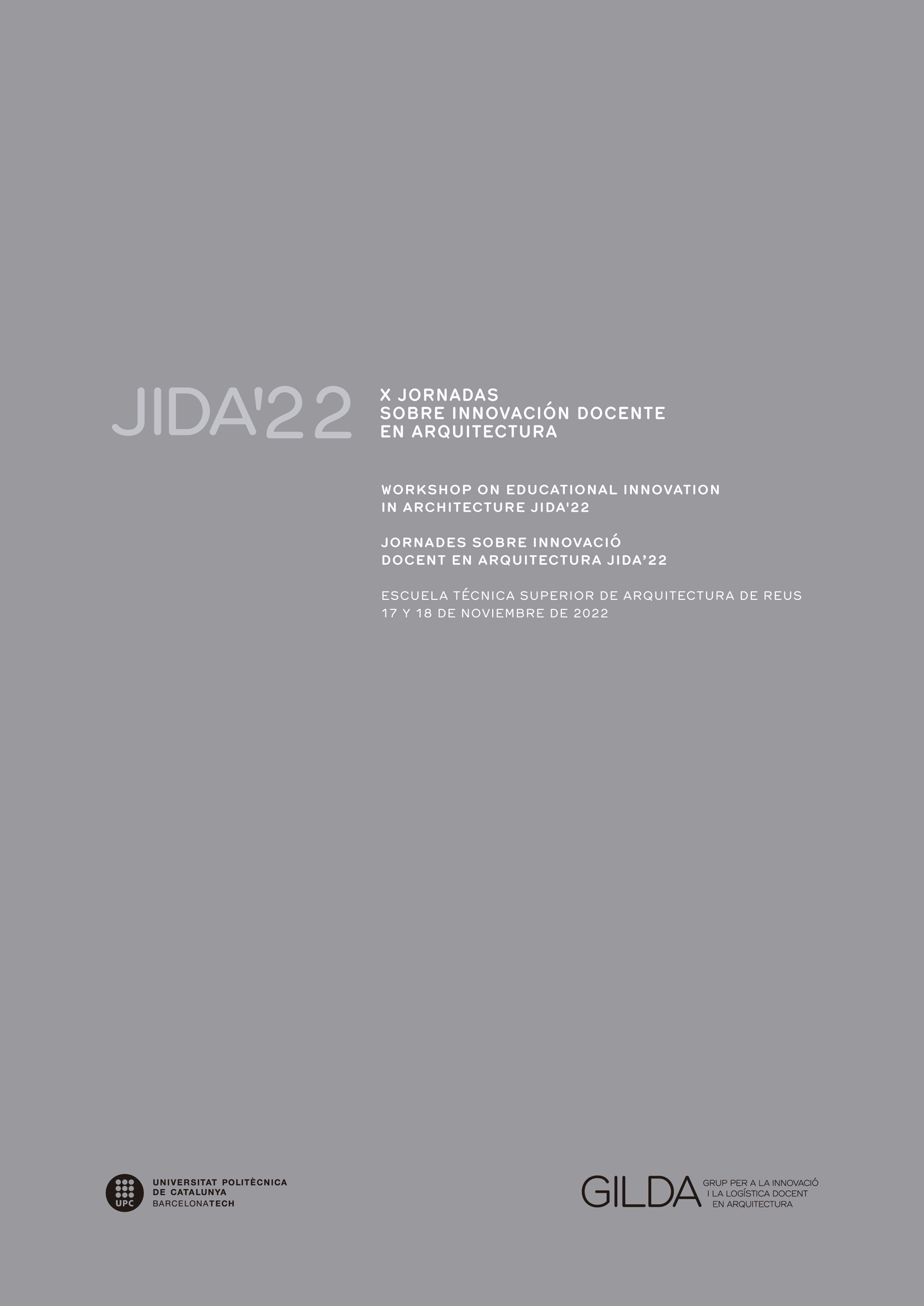Collaborative mapping of care spaces in the city
DOI:
https://doi.org/10.5821/jida.2022.11596Keywords:
city care, collaborative mapping, critical thinking, architectural projects, transdisciplinarityAbstract
This paper presents the design and implementation of a transdisciplinary didactic proposal based on controversy mapping, as a pedagogical technique to address controversies about socially acute questions such as space for care in the city by developing multidimensional thinking (critical, creative, and caring). This preliminary study analyses the collaborative map produced by architecture students in Architectural Projects 2 and presents their perceptions of the activity. The results include the collaborative map drawn up by the students in which they geolocate in a specific place in the study neighbourhood, La Trinidad in Malaga, the actants they have previously investigated, highlighting that all the proposed actants are non-human. The students say that the activity has given them a more realistic view of the neighbourhood and has helped them to understand how it works.
References
CHINCHILLA, I. (2020). La Ciudad de los Cuidados. Salud, Economía y Medio Ambiente. L.L. de la Catararta.
DELGADO PEÑA, J.J. y SUBIRES MANCERA, M.P. (2018). “La construcción social del lugar habitado a través de la cartografía colaborativa: Aprendiendo a expresar la propia realidad espacial” en García de la Vega, A. Reflexiones sobre educación geográfica. Revisión disciplinar e innovación didáctica. Madrid: Ediciones Universidad Autónoma de Madrid, p. 25-38.
FONTANA, M.P. y CABARROSA, M. (2018). “Aprendiendo a ver a través de las ciudades” JIDA’18. VI Jornadas sobre Innovación Docente en Arquitectura Zaragoza. Zaragoza: Servicio de publicaciones de la Universidad de Zaragoza, p.124 -137.
GEHL, J. (2013). Cities for People. Island Press.
HERRERO, Y., PASCUAL, M., y REYES, M.G. (2019). La vida en el centro: voces y relatos ecofeministas. Madrid: Libros en acción.
HERVÉ, N. (2019). “L’enquête dans la cartographie des controverses: principes pour une adaptation dans l’enseignement secondaire” en Simonneaux, J. La démarche d’enquête. contribution à la didactique des Questions Socialement Vives. Educagri éditions, p. 171-188.
LA CORRALA, G. D. E. A. (2016). Cartografía de la ciudad capitalista. Transformación urbana y conflicto social en el estado español. Madrid: Traficantes de Sueños.
LATOUR, B. (2005). Reassembling the social: An introduction to actor-network-theory. NY: Oxford University Press.
LATOUR, B. (2007). “La cartographie des controversies”. Technology Review, p. 82-83.
LATOUR, B. (2012). Cogitamus: seis cartas sobre las humanidades científicas. Paidós.
LEGARDEZ, A., y SIMONNEAUX, L. (2006). L’école à l'épreuve de l'actualité: enseigner les questions vives. ESF.
LIPMAN, M. (2016). El lugar del pensamiento en la educación. Barcelona: Octaedro.
NIETO, E. y MESA DEL CASTILLO. (2017). El mundo de proyectos zero en: VVAA (2017) Programa sin créditos: una investigación basada en la práctica artística. <https://eprints.ucm.es/id/eprint/61033/>
MUXÍ MARTÍNEZ, Z. (2018). Mujeres, casas y ciudades.: Más allá del umbral. dpr-barcelona.
JUARRANZ SERRANO, A., RIVERA LINARES, J. (2021) “Alternativas para enseñar arquitectura: del proyecto introspectivo al campo expandido” Bardí i Milà, B. y García-Escudero, D. En JIDA’21 IX Jornadas sobre Innovación Docente en Arquitectura Valladolid, ETSAVA-UVA, p. 118-131.
VALDIVIA, Blanca Alexandra. (2021). La ciudad cuidadora. Calidad de vida urbana desde una perspectiva feminista. Tesis doctoral. Barcelona: Universidad Politécnica de Cataluña, Barcelona Tech, UPC.
VENTURINI, T. (2010). “Diving in magma: how to explore controversies with actor-network theory” en Public Understanding of Science,19(3), p. 258-273.



















